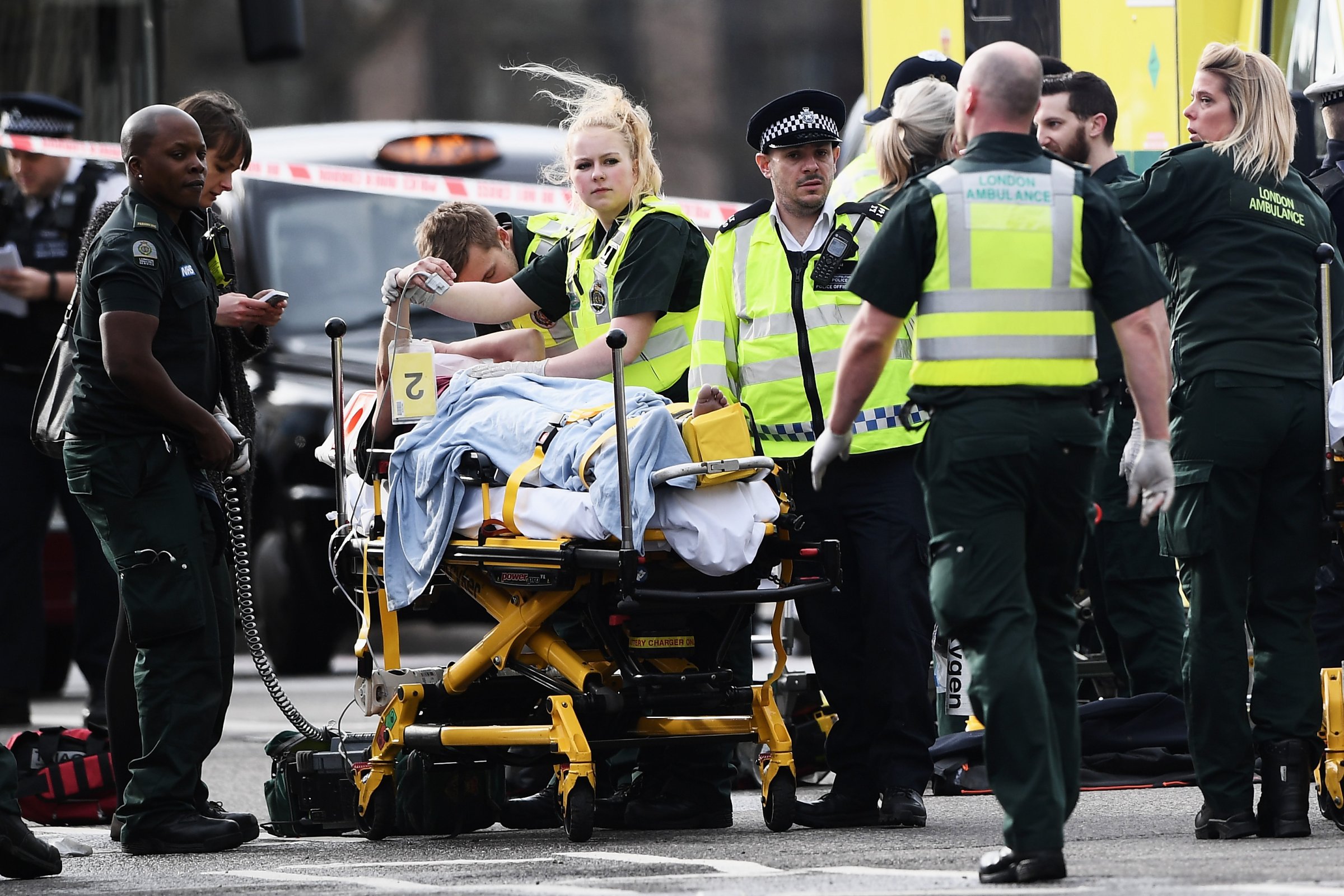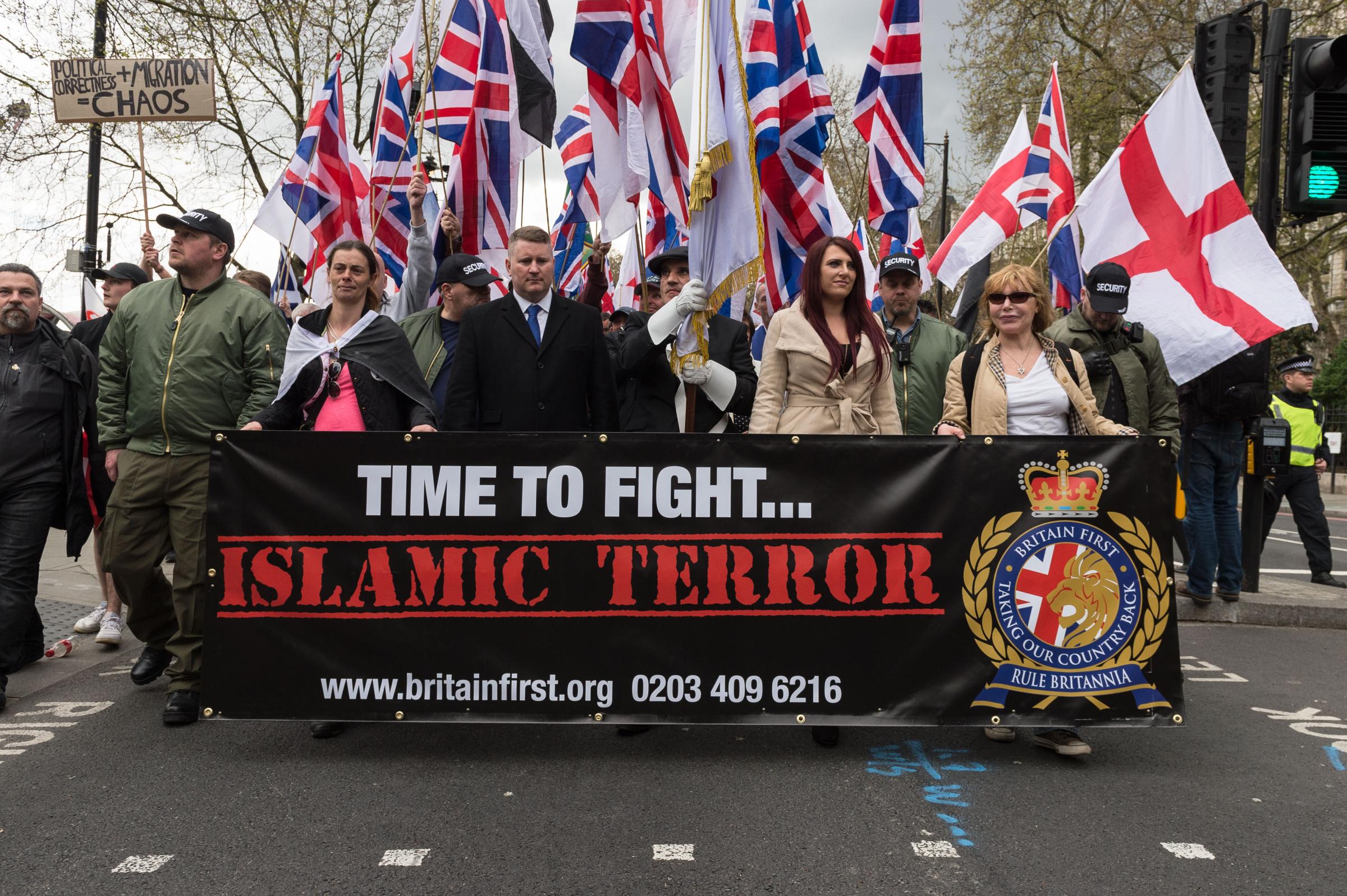
Far-right terrorism is on the rise in the United Kingdom, according to a new report from British advocacy group Hope Not Hate.
Hope Not Hate found that 28 far-right sympathizers were arrested on or convicted of terrorism-related charges and other offenses last year. That number is likely to rise in 2018, the group says.
That list includes Darren Osborne, who was sentenced to at least 43 years in prison for his June attack on Muslims worshippers outside a mosque in north London. Ethan Stables, a white supremacist convicted last month for preparing an attack on a pub hosting a gay pride night in western England, is also included.
While membership and active support for far-right groups such as the British National Party and Britain First is at its lowest point in 25 years, such organizations are growing online, the report says. That’s in part because younger, tech-savvy far-right activists are organizing, recruiting and message-spreading online. Hope Not Hate says three of the five far-right activists with the largest online audiences in the world — boasting at least million followers each — are British.

“From the comfort and safety of their own homes, these keyboard warriors can engage in far-right politics by watching YouTube videos, visiting far-right websites, networking on forums, speaking on voice chat services like Discord and trying to convert ‘normies’ on mainstream social media platforms,” the report states.
Hope Not Hate adds that the ability to be anonymous online has been a major contributor in the digital rise of the far right, as these groups’ members face minimal risk of being ostracized by their immediate community for sharing their views. The group’s analysis found that online support for far-right groups, especially those that are anti-Muslim, spiked following the terrorist attacks in London and Manchester last year.
“We are facing a surging threat from far-right terrorism and violent extremism,” said Hope Not Hate chief executive Nick Lowles in a statement. “It is vitally important now that police and the government do more to crack down on the peddlers of hate and those pushing a civil war rhetoric. Combined with burgeoning online hatred, directed particularly towards Muslims, we fear further violence from the extreme right in the months to come.”
More Must-Reads From TIME
- The 100 Most Influential People of 2024
- The Revolution of Yulia Navalnaya
- 6 Compliments That Land Every Time
- What's the Deal With the Bitcoin Halving?
- If You're Dating Right Now , You're Brave: Column
- The AI That Could Heal a Divided Internet
- Fallout Is a Brilliant Model for the Future of Video Game Adaptations
- Want Weekly Recs on What to Watch, Read, and More? Sign Up for Worth Your Time
Write to Kate Samuelson at kate.samuelson@time.com